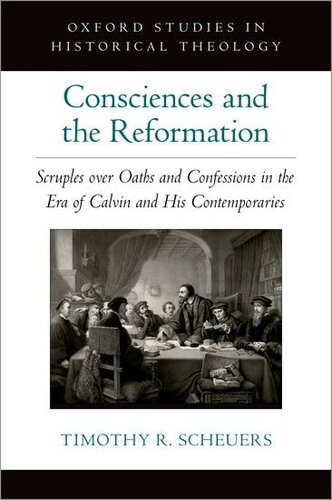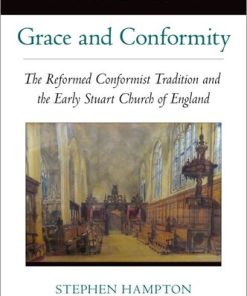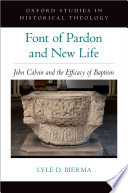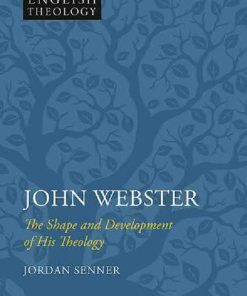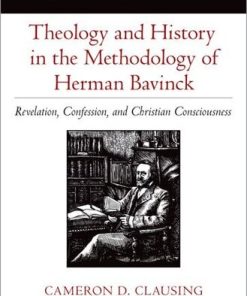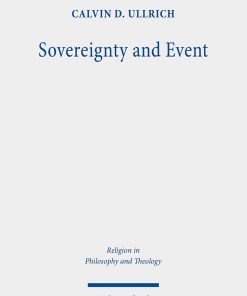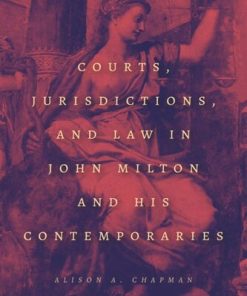Consciences and the Reformation: Scruples over Oaths and Confessions in the Era of Calvin and His Contemporaries (Oxford Studies in Historical Theology) 1st Edition Timothy R. Scheuers
$50.00 Original price was: $50.00.$25.00Current price is: $25.00.
Consciences and the Reformation: Scruples over Oaths and Confessions in the Era of Calvin and His Contemporaries (Oxford Studies in Historical Theology) – Ebook Instant Download/Delivery ISBN(s): 9780197692158,9780197692141,019769215X,0197692141
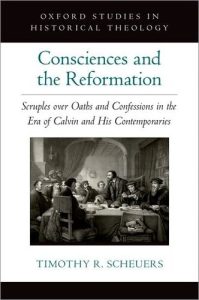
Product details:
- ISBN-10 : 0197692141
- ISBN-13 : 978-0197692141
- Author(s): Timothy R. Scheuers
This book examines the contentious relationship between oath-taking, confessional subscription, and the binding of the conscience in reforms led by John Calvin. Calvin and his closest Reformed colleagues routinely distinguished what they believed were impious rules and constitutions in the Roman Church–human traditions claiming to bind the consciences of the faithful by putting them in fear of losing their salvation–and legitimate church observances, such as oaths and formal subscription to Reformed confessional standards. Doctrinal and moral reform in the cities became difficult, however, when friends and foes alike accused Calvin and his partners of burdening consciences with extra-Scriptural statements of faith composed by human authorities–a claim that, if true, would necessarily shape our assessment of the integrity of Calvin’s Reformation.
In light of these conflicts, author Timothy R. Scheuers offers a close reading of the texts and controversies surrounding Calvin’s struggle for reform. In particular, he shows how they reveal the unique challenges Calvin and his colleagues encountered as they attempted to employ oath-swearing and formal confession of faith in order to consolidate the reformation of church and society. This book demonstrates how oaths and vows were used to shape confessional identity, secure social order, forge community, and promote faithfulness in public and private contracts. It also illustrates the complex and difficult task of protecting the individual conscience as Calvin sought to bring his new take on Christian freedom into Reformed communities.
Table contents:
Introduction
Section One: Calvin and the Reformers’ Inherited Legal Tradition
Chapter 1: Before Calvin: Oaths, Religious Coercion, and the Freedom of Conscience from the Medieval Church to the Reformation
Section Two: Answering Conscientious Objectors: Calvin and the Reformers Against Radical Dissent and Religious Compromise
Chapter 2: Conscience, Confession, and the Consolidation of Early Public Reform in Strasbourg, 1530-1535
Chapter 3: “Vera pietas veram confessionem parit”: Confession, Conscience, and Charity in the Anti-Nicodemism of Calvin and the Reformers
Chapter 4: Confession, Conscience, and Christian Freedom in the Later Anti-Nicodemite Writings of Calvin and the Reformers, 1540-1562
Section Three: Oaths, Confessional Subscription, and the Binding of the Conscience in Reformation Geneva
Chapter 5: Citizen’s Oath and Confession of Faith in Reformation Geneva, 1536-1538: Necessary, indifferent, or a tertium quid?
Chapter 6: “Make Them Afraid of Bearing False Witness”: Oaths, Conscience, and Discipline in the Registers of the Genevan Consistory, 1541-1564
Chapter 7: After Calvin: Oaths, Subscription, Conscience, and Compromise in the Genevan Academy, 1559-1612
Conclusion
Bibliography
People also search:
consequences of the catholic counter reformation
consequences of the reformation
consequences of the counter reformation
first century to the reformation and counter-reformation study guide
the reformation and the counter-reformation
the catholic reformation answer key
a reformation of morals practicable and indispensable
You may also like…
Uncategorized
History - World History
History - World History
Politics & Philosophy - General & Miscellaneous Philosophy
Sovereignty and Event: The Political in John D. Caputo’s Radical Theology
Politics & Philosophy
Courts, Jurisdictions, and Law in John Milton and His Contemporaries Alison A. Chapman


